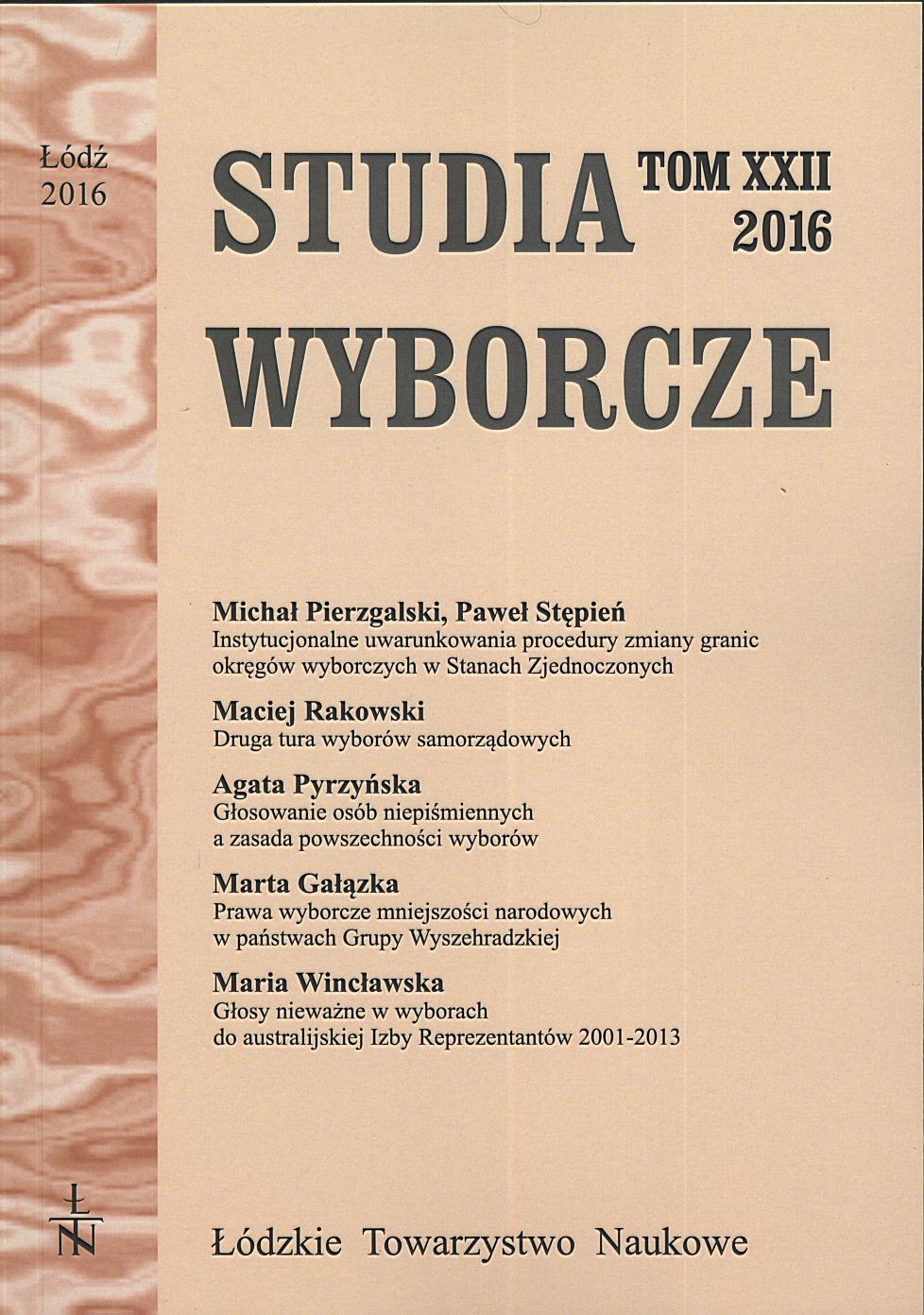Druga tura wyborów samorządowych – gwarancja demokracji czy zbędna dekoracja?
The second round in the local elections – the guarranty of democracy or the useless decoration?
Author(s): Maciej RakowskiSubject(s): Politics / Political Sciences, Law, Constitution, Jurisprudence, Electoral systems
Published by: Łódzkie Towarzystwo Naukowe
Keywords: local government in Poland; local elections; second round of elections; electoral code; mayor; president of the city
Summary/Abstract: In the article there are presented some problems connected with the second round of elections of mayors and presidents of cities in Poland. Due to the art. 473 of the electoral code the second round of elections is necessary, when in the first voting none of the candidates got more than half of the total number of valid votes. In the second voting compete two candidates, who got the highest numbers of votes in the first round of elections. The author collected data for the elections of mayors and presidents in all the communities of four Polish voivodeships: łódzkie, podkarpackie, świętokrzyskie and zachodniopomorskie (with 533 communities) for the local elections of 2014. In 43 of these communities there was only one candidate, and in 167 – only two. In the rest of the communities (323) there were three or more candidates (the highest number – 11 – was observed in the elections of president of city of Zgierz). In 196 cases in this group it was necessary to hold the second voting. The author presents the data which shows the connection between the number of candidates and the probability of final success already in the first voting. In 71% of cases the second round of voting was won by the candidate, who had got the best result in the first voting. There were analyzed the detailed results of voting – the percent of votes received by the winner of the first voting and the difference (also in percents) between him and the candidate who took the second position in the first voting. The author shows, that when the advantage of the winner of the first voting is big enough, the probability of the success of his competitor is very little in practice (but also situations like that took place in 2014). In the text there was presented the proposal of changes in the Polish electoral code, aiming to resign of the second round of voting in communities, where the winner of the first elections got less than 50% of votes, but his advantage over other candidates was big enough. Describing the examples from the elections of 2014 the author critics the article of the electoral code, which say, that when one of the candidates in the second round resigns, there is only one candidate left in the second voting (the author says, that in such a situation candidate with the next highest number of votes should enter the second round of the elections).
Journal: Studia Wyborcze
- Issue Year: 2016
- Issue No: 22
- Page Range: 31-51
- Page Count: 21
- Language: Polish

